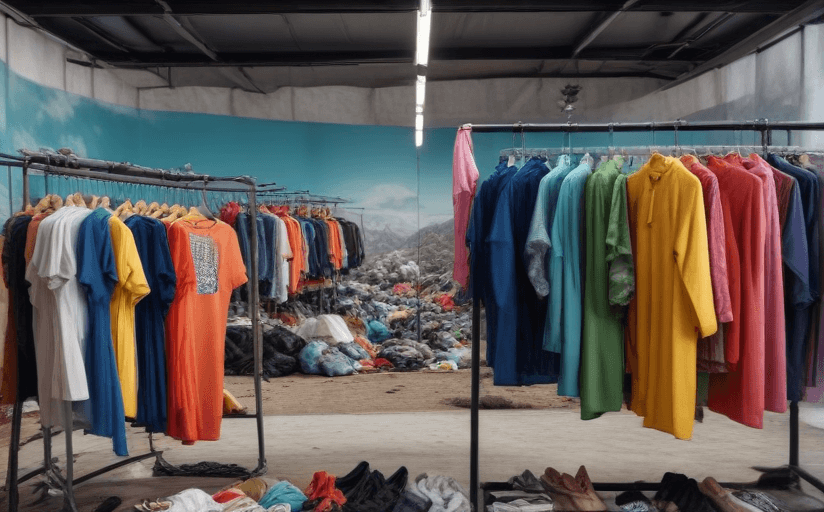The Impact of Fast Fashion on the Environment and Sustainable Solutions
The fast fashion industry has come under scrutiny in recent years for its environmental impact, with issues ranging from extreme water consumption to pollution and contribution to landfills.
Overview of Fashion Industry's Environmental Threat
The nature and extent of these problems derive from factors inherent to fast fashion. For instance, the fast fashion model relies heavily on the constant production of new items, leading to an overconsumption of water resources. Fast fashion also contributes to pollution through hazardous chemicals used in production processes, and the non-biodegradable synthetic materials used in clothes result in long-lasting contributions to landfills.
Unsustainable Practices in the Fashion Industry
The business model of the fashion industry, marked by short trend cycles and high inventory turnover, lends itself to these environmental issues. Mass production leads to a waste creation, and the discarding of unsold clothing contributes significantly to landfills. Further, the use of cheap, low-quality materials reduces the lifespan of clothing, driving further production and waste creation.
Sustainable Solutions
There is a growing recognition that sustainable solutions are needed to address these problems. These include the creation of clothes from recycled or organic materials, clothing rental services, and promoting the reuse and recycling of clothing. It's crucial that consumers, manufacturers, and policymakers move toward a more sustainable future for the fashion industry.
Role of Consumers, Manufacturers, and Policymakers
Consumers can help by choosing to buy less, but higher-quality clothes, and by recycling or donating used clothes. Manufacturers can shift towards using eco-friendly and recycled materials, and can incorporate policies that reduce waste. Policymakers can aid by encouraging manufacturing practices that are environmentally friendly and introducing regulations to manage waste production.
Why Transitioning to Sustainable Fashion is Crucial
Transitioning to sustainable fashion is not only environmentally necessary, but it also has socio-economic implications. From protecting water resources to reducing landfill waste, it can help ensure a viable future. It also has the potential to create ethical jobs in the areas of recycling and sustainable production.
Models of Sustainable Fashion: Successful Examples
Businesses pioneering sustainable fashion include Patagonia, which has long been committed to using recycled materials, reducing waste and improving labor conditions. Another example is Stella McCartney, a luxury brand known for its sustainable and ethical practices. These businesses demonstrate that sustainable fashion is achievable and financially viable, setting an example for the rest of the industry to follow.



















Comments
Leave a Comment